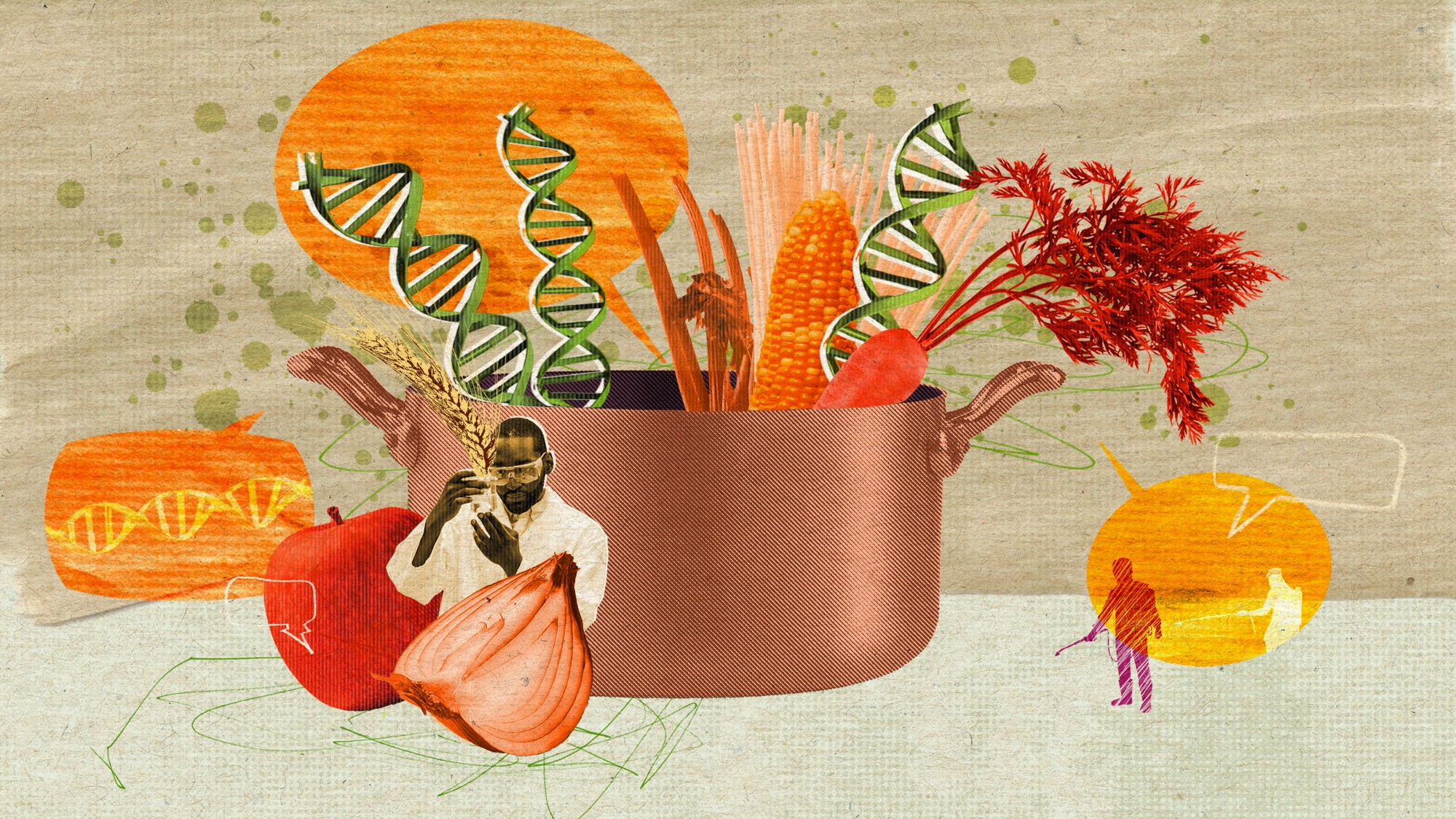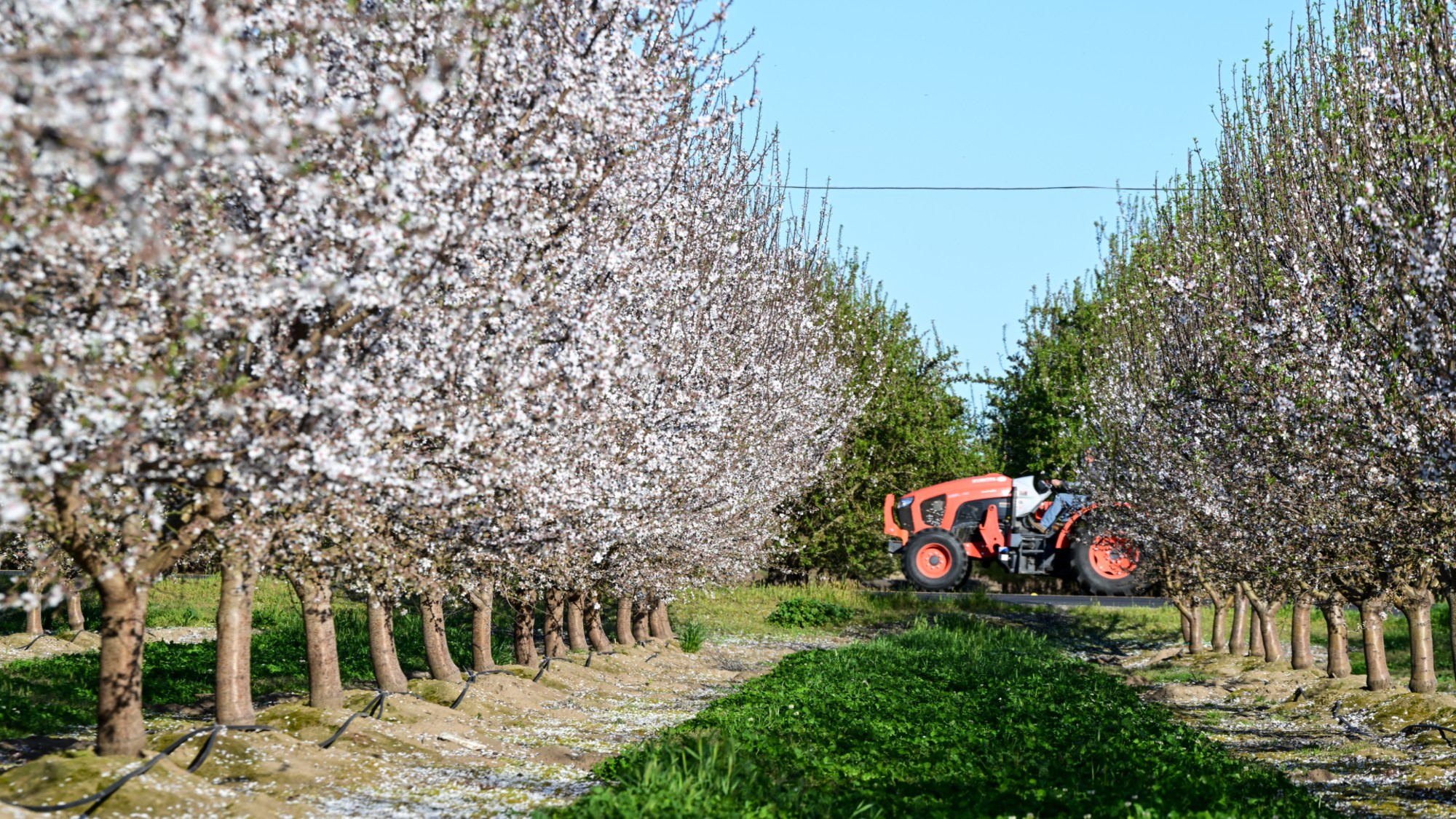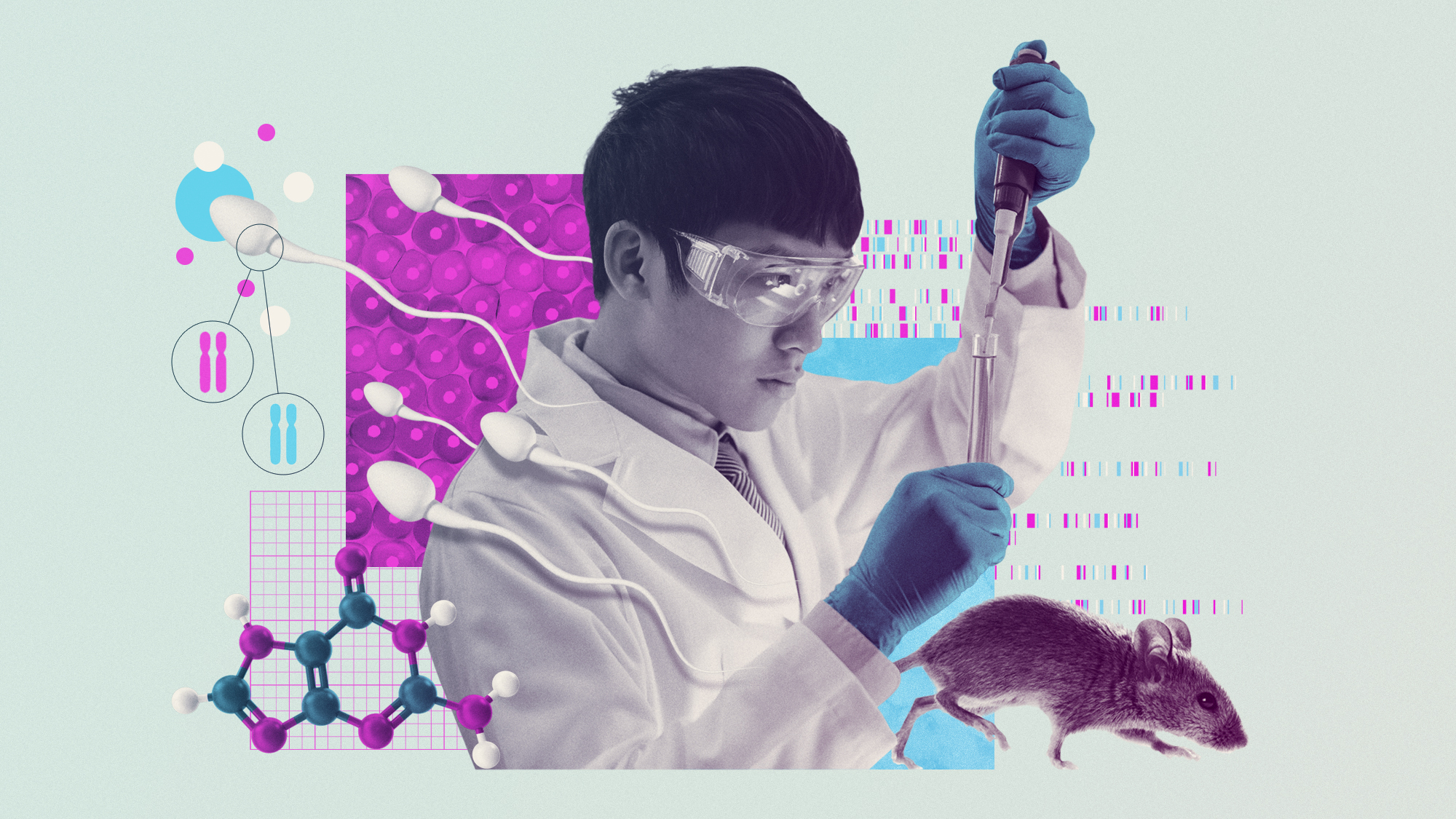The pros and cons of GMOs
The modified crops are causing controversy


A free daily email with the biggest news stories of the day – and the best features from TheWeek.com
You are now subscribed
Your newsletter sign-up was successful
Genetically modified organisms (GMOs) are organisms that have had their DNA altered through genetic engineering, usually to add positive attributes. They have become a hot topic of debate: While some people swear by their ability to make food more accessible, others are skeptical about their safety.
Pro: Requires fewer pesticides
Pesticides can contain harmful chemicals that have been known to cause damage to the environment as well as human health. Luckily, the vast majority of GMOs grown in the U.S. are "engineered to produce their own pesticides, or survive direct application of pesticides," said As You Sow. In making crops more genetically resistant to pests, fewer pesticides are required to cultivate the crops. "Farmers can use less spray pesticides when they plant GMO crops," according to the FDA, which also "saves farmers money."
Con: Could cause allergic reactions
Some worry that GMOs could trigger certain allergic reactions. "If a soybean is crossed with a certain nut, it's possible that people with allergies to the nut may react to the genetically engineered soybean," said Yahoo. Mixing DNA has the potential to be risky, however, research has shown that GMOs are not more likely to cause reactions than non-GMOs. "Scientists developing GMOs run tests to make sure allergens aren't transferred from one food to another," said the FDA.
The Week
Escape your echo chamber. Get the facts behind the news, plus analysis from multiple perspectives.

Sign up for The Week's Free Newsletters
From our morning news briefing to a weekly Good News Newsletter, get the best of The Week delivered directly to your inbox.
From our morning news briefing to a weekly Good News Newsletter, get the best of The Week delivered directly to your inbox.
Pro: Higher nutritional value
GMOs can be engineered to have higher nutritional value. "Golden Rice, for example, developed in 2004, satisfies 50% of your daily Vitamin A needs per cup," said the University of Michigan School of Public Health. "Furthermore, the crop is durable and can grow in relatively infertile regions of the world," where Vitamin A deficiency is widespread, like sub-Saharan Africa. Several other foods have been modified to be healthier and more accessible.
Con: Increases antibiotic resistance
Many GMOs have genes added that make them resistant to certain antibiotics so that "GM plants and cells can be distinguished from non-GM ones," said the government of the Netherlands. While this could help increase the strength and longevity of the crop, there is a risk that resistance could transfer.
After eating a GMO, theoretically, "such genes can be transferred to bacteria in the gastrointestinal tract of humans or animals," said the Netherlands government. "The bacteria could go on to develop resistance to that specific antibiotic. Subsequently that antibiotic could be ineffective in treating humans affected by the resistant bacteria." Antibiotic resistance is a growing problem globally and it has the potential to worsen diseases.
Pro: Lowers food costs
Growing GMOs can lower costs in several ways. Climate change, overfarming and population growth have all caused crop yields to decrease. Genetic engineering can "improve crop yields and help farmers grow food in drought regions or on depleted soil, thereby lowering food prices and feeding more people," said Britannica. In addition, "GMO crops, through their environmental sustainability, potential for nutritionally-fortified foods and increased productivity, actually play a key role in keeping the cost of food down, now and in the future," said Forbes
A free daily email with the biggest news stories of the day – and the best features from TheWeek.com
Con: Unknown health implications
Not much is known about the long-term effects of GMOs on human health. Many worry that altering DNA could increase the risk of cancer, but there is no evidence to suggest this is true. "In theory, these added genes might create substances that could cause reactions in sensitized or allergic people, or result in high levels of compounds that could cause other health effects," said the American Cancer Society. "However, at this time there is no evidence that foods now on the market that contain genetically engineered ingredients or the substances found in them are harmful to human health." In reality, not much research exists disputing or supporting the claim, which is a cause for concern in and of itself.
Devika Rao has worked as a staff writer at The Week since 2022, covering science, the environment, climate and business. She previously worked as a policy associate for a nonprofit organization advocating for environmental action from a business perspective.
-
 6 exquisite homes with vast acreage
6 exquisite homes with vast acreageFeature Featuring an off-the-grid contemporary home in New Mexico and lakefront farmhouse in Massachusetts
-
 Film reviews: ‘Wuthering Heights,’ ‘Good Luck, Have Fun, Don’t Die,’ and ‘Sirat’
Film reviews: ‘Wuthering Heights,’ ‘Good Luck, Have Fun, Don’t Die,’ and ‘Sirat’Feature An inconvenient love torments a would-be couple, a gonzo time traveler seeks to save humanity from AI, and a father’s desperate search goes deeply sideways
-
 Political cartoons for February 16
Political cartoons for February 16Cartoons Monday’s political cartoons include President's Day, a valentine from the Epstein files, and more
-
 How climate change is affecting Christmas
How climate change is affecting ChristmasThe Explainer There may be a slim chance of future white Christmases
-
 Why scientists are attempting nuclear fusion
Why scientists are attempting nuclear fusionThe Explainer Harnessing the reaction that powers the stars could offer a potentially unlimited source of carbon-free energy, and the race is hotting up
-
 Canyons under the Antarctic have deep impacts
Canyons under the Antarctic have deep impactsUnder the radar Submarine canyons could be affecting the climate more than previously thought
-
 NASA is moving away from tracking climate change
NASA is moving away from tracking climate changeThe Explainer Climate missions could be going dark
-
 A rat infestation is spelling trouble for the almond industry
A rat infestation is spelling trouble for the almond industryThe Explainer The infestation has affected at least 100,000 acres in California
-
 What would happen to Earth if humans went extinct?
What would happen to Earth if humans went extinct?The Explainer Human extinction could potentially give rise to new species and climates
-
 How mice with two dads bring us closer to two men having a child of their own
How mice with two dads bring us closer to two men having a child of their ownThe Explainer Science breakthrough produces healthy, fertile mice from two sperm cells and an empty egg
-
 Bacteria can turn plastic waste into a painkiller
Bacteria can turn plastic waste into a painkillerUnder the radar The process could be a solution to plastic pollution
